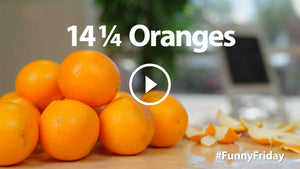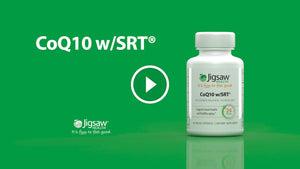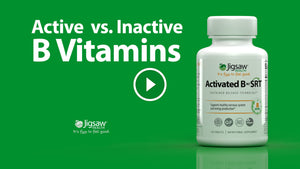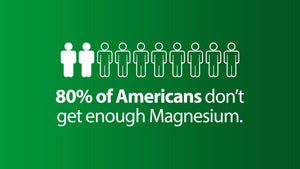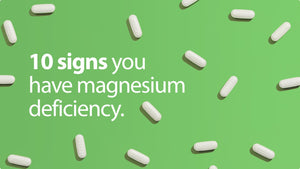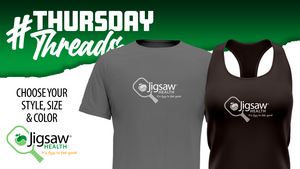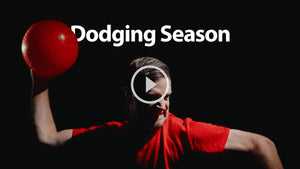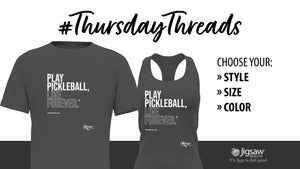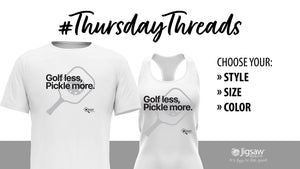Are you getting the most out of your Vegetables?
Thomas DeLauer breaks down the science behind mineral absorption from fresh and frozen vegetables (and some fruits, too!) on the latest #ScienceSaturday. This might even help you save $$$ on your next trip to the grocery store. ![]() ;-)
;-)
Make sure you are meeting the RDI 400mg of Magnesium per day with Jigsaw's MagSRT™ – America's #1 Time-Release Magnesium Supplement:
Transcript by Rev.com
- If you're not taking your MagSRT™, you better be paying darn close attention to all the fruits and vegetables that you're eating to make sure that you're getting the vitamins and minerals. However, getting them from a fresh source or a frozen source could be the difference between you getting the adequate amount of minerals, the adequate amount of vitamins that you need to live the best possible life. So let's break down the difference between fresh and frozen and I might even help save you a little bit of money with this video if you watch it in its entirety.
-So let's get down to the science. But first off, what happens when they pick a veggie? When they pick a fruit or they pick a veggie, something known as respiration occurs. What this respiration means is it's basically just the standard oxidation of a fruit and vegetable, meaning that it's losing water and it's losing heat. This is gonna make it so that the vegetable or fruit ultimately starts losing nutrients. So we have to look at what happens when it's picked. Usually when a fruit or vegetable is picked, it's put onto a truck and it's transported for one to three days to get to the grocery store. Then it's sitting on the grocery store shelf for usually one to three days as well. Then we as the consumer pick it up, take it home and it sits in our fridge for another one to three days. So by the time you're actually eating it, you could have up to 10 days, sometimes even two weeks, of actual oxidation or respiration that's happening, killing a lot of the nutrients in the fruits and vegetables. That's not anything that we really wanna be dealing with.
-Now we also have to look at the enzymatic activity. Okay, what happens with a fresh veggie is they create particular enzymes known as trypsin and chymotrypsin, and what these enzymes do is they break down the nutrients in the fruit and veggies. But the cool thing is, this enzymatic function can be halted, it can be stopped and it's stopped by freezing. So if we take a vegetable that's picked at the peak of harvest and then we immediately freeze it, we're stopping that enzymatic activity. We're stopping that enzymatic process of the trypsin and the chymotrypsin from breaking down the nutrients, therefore leaving you with not only a ripe fruit or vegetable, but a more nutrient dense one as well.
-Now I do have to play devil's advocate here for just a second 'cause there is one downside when it comes down to frozen veggies or frozen fruit, and that's the fact that frozen veggies in particular are usually blanched. Now this is a good and bad thing. They're blanched, put in boiling water for just a second or two to kill off bacteria. When you pick up a fruit or veggie, you're gonna have to wash it either way to get rid of the bacteria. But with frozen, they blanch it for a second and take care of that for you. This is good because you're killing off the bacteria, but it's bad because you lose some of the water soluble vitamins. So those water soluble vitamins are things like Vitamin B, things like Vitamin C. Now you only lose a small amount of them, so you do have to kinda factor in your pros and cons here.
-But if you pick vegetables that are predominantly fat soluble vitamin based, then you're in a really good position. Those are gonna be things like carrots that have a high amount of Vitamin A, or things like broccoli, or things like spinach, or things like squash. Those are great things to get frozen 'cause they have high levels of fat soluble vitamins that are not going to leach out through that blanching process. But when I'm saying this, I also have to be cognizant of a recent study.
-So this study was conducted at UC Davis in California. What UC Davis did is they took a look at eight different fruits and veggies in both fresh and frozen form. They took a look at corn, carrots, broccoli, spinach, green beans, peas, strawberries and blueberries. And they were taking a look at what actually happened to the nutritional value of these when they are either fresh versus frozen. Well, guess what? They found almost no difference between the two. In fact, the only differences that they did find between the fresh and frozen is that some of the frozen vegetables contained higher amounts of certain vitamins. For example, broccoli ended up having more riboflavin, which is a B vitamin and then they also found that the berries ended up having more Vitamin C, which is actually a water soluble vitamin. But it goes back to the fact they usually don't blanch the fruit, they only blanch the vegetables. So UC Davis right then and there proved that frozen fruit and frozen veggies generally are just as good, if not better, than fresh fruit and veggies.
-So I hope that this video helps you save a little bit of money when it comes down to buying your veggies. You don't have to follow the mainstream telling you that you only need to be eating fresh stuff because freezing stops time, just like you can be freezing your body if you wanna live forever. But we can't all freeze ourselves to live forever, so we might as well eat the frozen vegetables that are gonna help us live a little bit longer.
-As always, Jigsaw crew, make sure you're keeping it locked in here on the Science Saturday videos to learn the science and learn the facts that you need to live the best possible life. I'll see you soon.







